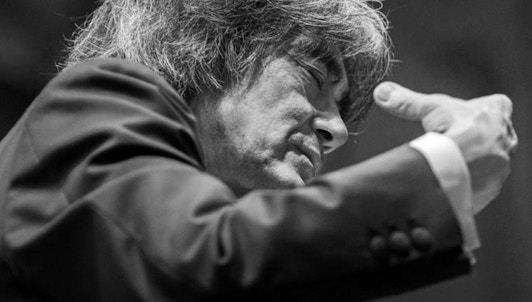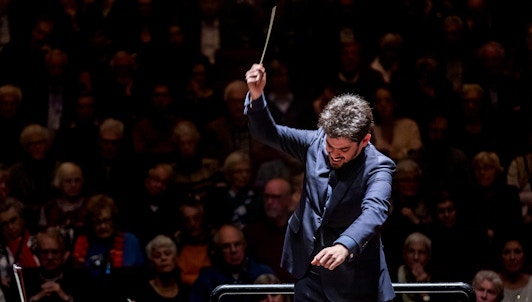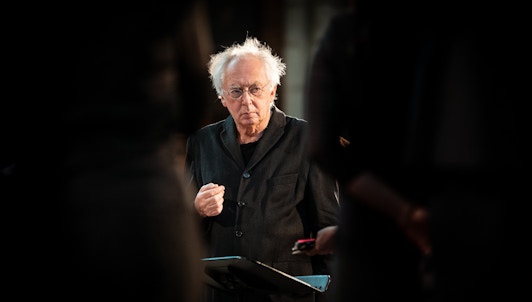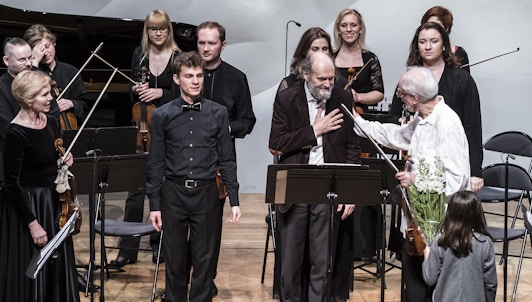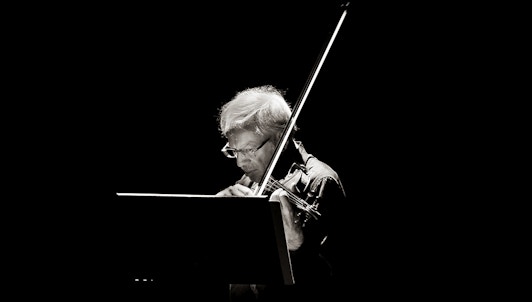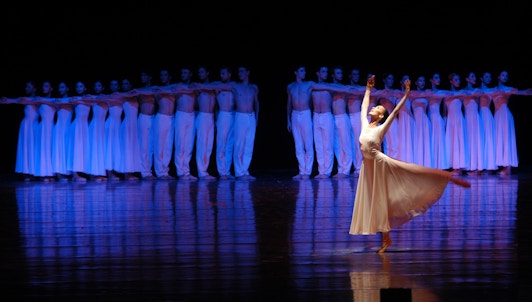Born in 1935 in Estonia, Arvo Pärt studied music at the Music Secondary School in Tallinn. His education was interrupted in 1954 when he underwent military service. In 1957, he became a pupil at the Tallinn Conservatoire where he studied with Heino Eller. He worked for the Estonian radio and composed film music until he acquired his diploma in 1963.
From serial writing to Gregorian music
At the beginning of the 1960s, he taught himself serial music which provoked enmity as serial music was considered, “an archetype of Western bourgeois decadence”. In 1962, he was awarded first prize at the All-Union competition for Our Garden, a cantata for children’s’ voices and his oratorio, Stride of the World.
At the end of the 1960s, tormented by a creative crisis, Arvo Pärt renounced serial writing and indeed composition itself for several years as he devoted his time to studying Gregorian music.
Arvo Pärt, inventor of a new style
In 1976, the piece For Alina paved the way for his new style, which he explained in the following terms: “I work with very few elements – only one or two voices. I build upon a primitive material like a triad or a specific key. The three notes of a triad are like bells. That’s why I called it tintinnabulation”. The following year, Pärt wrote three of his most renowned pieces in this new style: Fratres, Cantus in Memoriam Benjamin Britten and Tabula Rasa.
Pärt's work: from censorship to glory
Living in the Soviet Union, he had limited access to the work of his western contemporaries. In the 1960s, his compositions, in particularly his religious pieces were subjected to censoring from the soviet authorities. However, in the 1970s his work began to be played in the west. In 1980, he and his family crossed over to the west and obtained Austrian nationality. The following year, he received a grant from the German Academic Exchange and settled in Berlin.
In 1996, he was elected to the American Academy of Arts and Letters and in 2003, he received the contemporary music prize from the Classical Brit Awards. In 2010, the Arvo Pärt Festival took place in Estonia to celebrate the composer’s seventy-fifth birthday.


